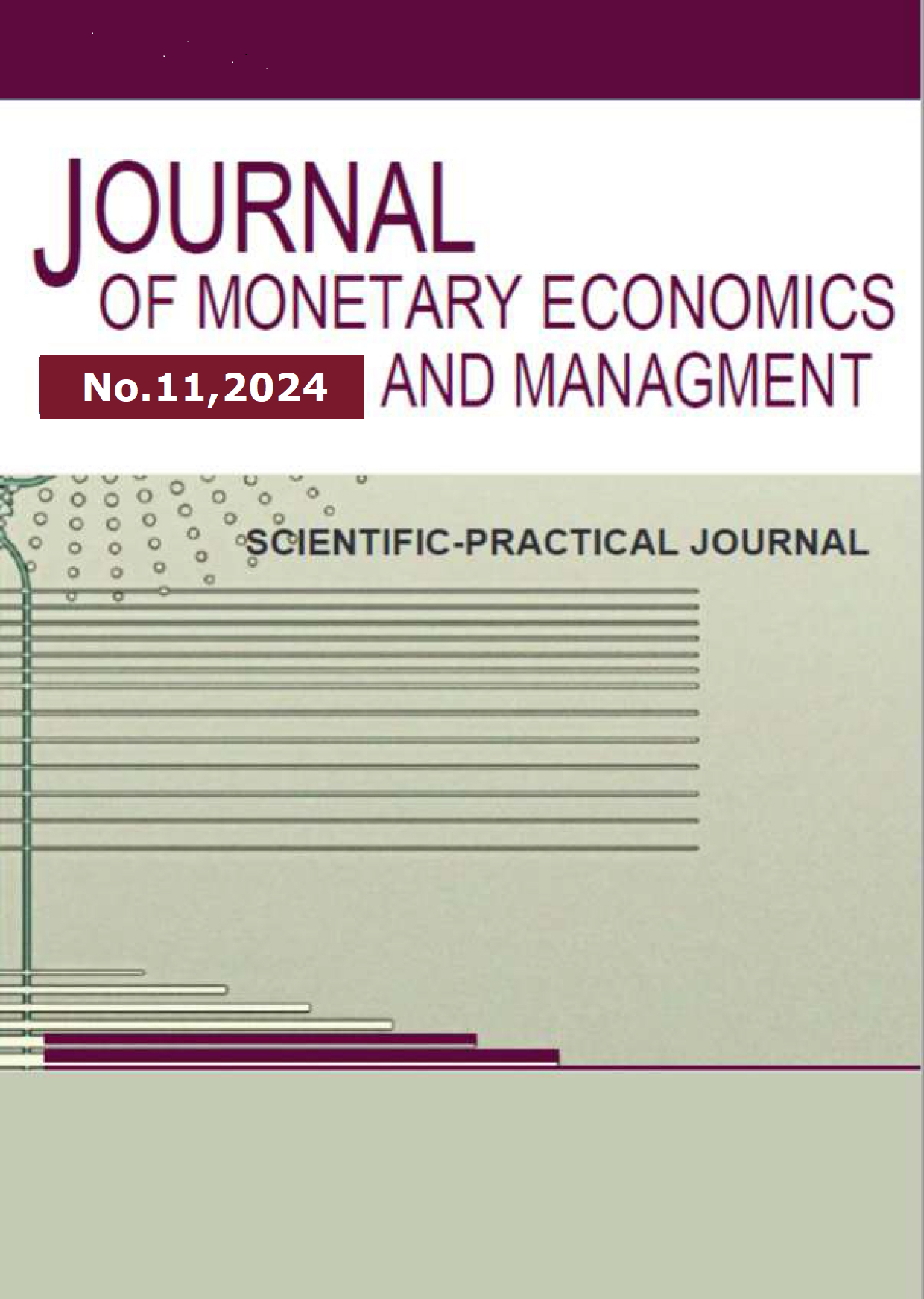employee
The article discusses the main areas of improving the mechanisms for managing the public debt of the Russian Federation. In the context of financial instability and economic challenges, effective management of public debt is becoming one of the priority tasks of state financial policy. The article analyzes the existing mechanisms used for debt management, identifies their strengths and weaknesses, and offers innovative approaches to optimize these processes. Particular attention is paid to the issues of planning and forecasting the level of public debt, as well as the need to introduce modern technologies into the management system. The study considers international experience and modern trends in the field of public debt management, including the use of digital technologies and automated monitoring systems. The principles of transparency and accountability in debt management, which contribute to increasing confidence on the part of investors and international partners, are also discussed. The conclusion of the article emphasizes the importance of an integrated approach to improving public debt management mechanisms, which should take into account both internal economic realities and external factors of influence. The author concludes that effective public debt management is the key to the country's financial stability and can play a decisive role in the economic development of the Russian Federation.
public debt, financial policy, debt management, budget policy, economic development
1. Byudzhetnyy kodeks Rossiyskoy Federacii ot 31.07.1998 № 145-FZ (red. ot 22.12.2020)– Tekst: elektronnyy // Konsul'tantPlyus: spravochno-pravovaya sistema: sayt. - URL: http://www.consultant.ru/document/cons_doc_LAW_19702/ (data obrascheniya: 10.05.2024).
2. Federal'nyy zakon ot 07.02.2011 № 6-FZ «Ob obschih principah organizacii i deyatel'nosti kontrol'no-schetnyh organov sub'ektov Rossiyskoy Federacii i municipal'nyh obrazovaniy» SPS «Konsul'tant Plyus»: Zakonodatel'stvo: Versiya Prof. [Elektronnyy resurs]. URL: Rezhim dostupa: URL:http://www.consultant.ru/document/ cons_doc_LAW_110266/ (data obrascheniya: 10.05.2024).
3. Rossiyskaya Federaciya. Zakony. O Schetnoy palate Rossiyskoy Federacii. Federal'nyy zakon ot 05.04.2013 N41-FZ URL:http://www.consultant.ru/document/cons_doc_LAW_144621/ (data obrascheniya: 10.05.2024).
4. Ukaz Prezidenta RF ot 13.05.2017 N 208 «O Strategii ekonomicheskoy bezopasnosti Rossiyskoy Federacii na period do 2030 goda» // SPS Konsul'tantPlyus
5. Rossiyskoy Federacii i ee vliyanie na ekonomicheskuyu bezopasnost' Rossii / A. S. Akmatalieva, E. V. Har'kina. — Tekst : neposredstvennyy // Molodoy uchenyy. — 2020. — № 23 (313). — S. 346-349. — URL: ://moluch.ru/archive/313/71348/ (data obrascheniya: 20.10.2024).
6. Samaeva E.V. Politika obespecheniya ekonomicheskoy bezopasnosti Rossii / E.V. Samaeva, G.Ya. Kazakova, B.E.Timoshkeeva // Vestnik altayskoy akademii ekonomiki i prava. - 2019. - №3-2. S.167-172.
7. Gindes E.G. Mirovoy opyt upravleniya gosudarstvennym dolgom / E.G. Gindes, I.N. Bucenko // Azimut nauchnyh issledovaniy: ekonomika i upravlenie. - 2020. - №1 (26). S.123-128.
8. Bulgakova N. Upravlenie gosudarstvennym vneshnim dolgom / I. Bulgakova, I.G. Ershova // Sovremennye innovacionnye napravleniya razvitiya deyatel'nosti strahovyh i finansovo-kreditnyh organizaciy v usloviyah transformacionnoy ekonomiki. - 2020. S. 127-132.
9. Ministerstvo finansov Rossiyskoy Federacii : oficial'nyy sayt. – Moskva. – Obnovlyaetsya v techenie sutok. – URL: /http://www.minfin.ru/ (data obrascheniya 20.10.2024).
10. Byudzhet dlya grazhdan k proektu federal'nogo zakona o federal'nom byudzhete na 2023god i na planovyy period 2024 i 2025 godov-URL:https://minfin.gov.ru/common/upload/library/2020/10/main/0778_Minfin_Budget.pdf (Ddata obrascheniya 20.10.2024)
11. Posledova A.V., Rodin D.Ya. Problemy upravleniya gosudarstvennym dolgom//Aktual'nye voprosy sovremennoy ekonomiki. 2022.- №12. S.618-626









